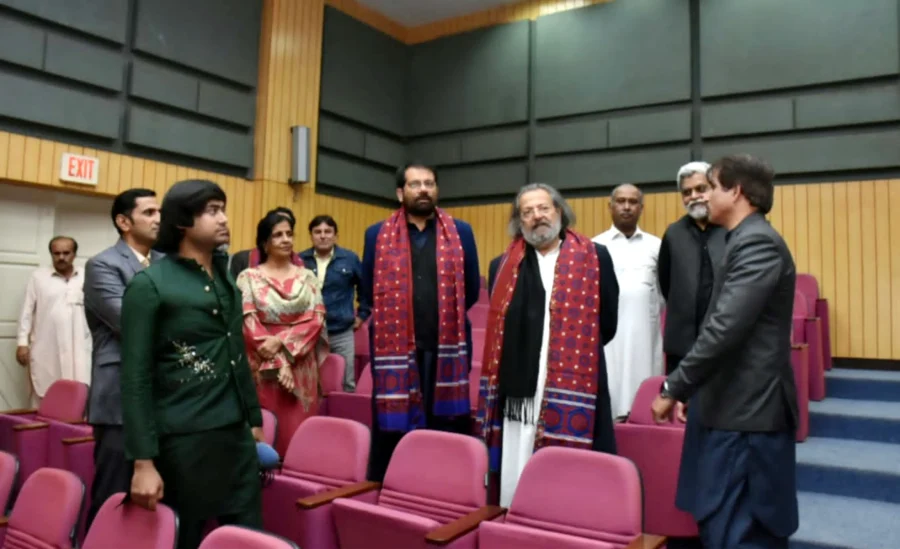Caretaker Federal Minister for Education and Professional Training, Madad Ali Sindh, calls on political parties to prioritize education and governance in their election manifestos for the next five years. Emphasizing the need for educational infrastructure development, improvement in learning systems, sustainable policies, and teacher training, he aims to enhance the quality of education in the country and ensure enrollment for out-of-school children.
The minister expressed the views while presiding over meetings during visits to the regional offices of Allama Iqbal Open University (AIOU) and Inter board Coordination Commission (IBCC) at Karachi and talking to media persons on the occasion. Madad Ali Sindhi observed that over 25 million out of school children, the dilapidated condition of public sector educational institutions, disconnection between teachers and parents, non-utilization of earmarked funds and other issues indicate that the education sector could not get proper attention of political parties in the past and remained excluded from their manifestos while bureaucracy also failed to play a positive role in the regard.
Now it has been inevitable that whichever political party comes into power after the upcoming general elections must dedicate its five year term to improve the education in Pakistan as it was the only option for development of the country, he maintained and emphasized that people should also urge their representatives for taking measures in the regard. The minister said that during the short tenure of the caretaker government, he had adopted a proactive approach to improve the educational standards and deal with the issues and 20 out of 50 schools of federal capital were selected for reforms. Those educational institutes were being transformed as model schools with provision of missing facilities and improvement of their management, he said and added that the caretaker government was also focusing on universities and boards and measures were taken to resolve their issues while chairmen of educational boards were directed to improve the system and ensure transparency in examination and assessment processes by utilizing modern digital technologies.
Madad Ali Sindhi expressed concerns on issues of drug abuse and harassment in educational institutions and said that the government was taking steps to do away with the issues but there should be close coordination between parents and teachers and teaching faculty keep an eye on the students and their behaviors to help overcoming such issues.
He emphasized on a comprehensive policy, coordinated efforts and joint initiatives by federal and provincial governments for educational improvement and said following the 18th Constitutional Amendment, the education sector has been devolved to provinces. Earlier, Executive Director IBCC, Prof. Dr. Ghulam Ali Mallah, briefed the minister that one window procedure and online system for verification was functional in IBCC and it had facilitated the students to a great extent. Assistant Regional Director AIOU Karachi office, Zulfiqar Ali Zardari briefed that 56 campuses of Allama Iqbal Open University were functional around the country and there was a need of more campuses to cater the large number of students.










